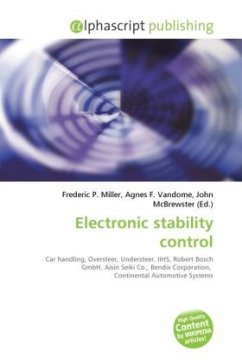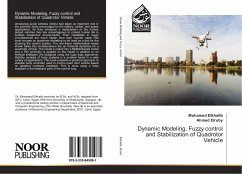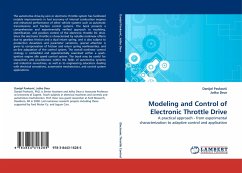
Electronic stability control
Versandkostenfrei!
Versandfertig in 6-10 Tagen
23,99 €
inkl. MwSt.

PAYBACK Punkte
12 °P sammeln!
High Quality Content by WIKIPEDIA articles! Electronic stability control (ESC) is a computerized technology that improves the safety of a vehicle's stability by detecting and minimizing skids. When ESC detects loss of steering control, ESC automatically applies the brakes to help "steer" the vehicle where the driver intends to go. Braking is automatically applied to individual wheels, such as the outer front wheel to counter oversteer, or the inner rear wheel to counter understeer. Some ESC systems also reduce engine power until control is regained. Electronic stability control does not improv...
High Quality Content by WIKIPEDIA articles! Electronic stability control (ESC) is a computerized technology that improves the safety of a vehicle's stability by detecting and minimizing skids. When ESC detects loss of steering control, ESC automatically applies the brakes to help "steer" the vehicle where the driver intends to go. Braking is automatically applied to individual wheels, such as the outer front wheel to counter oversteer, or the inner rear wheel to counter understeer. Some ESC systems also reduce engine power until control is regained. Electronic stability control does not improve a vehicle's cornering performance; rather it helps to minimize a loss of control. In the United States, NHTSA estimates 5,300-9,600 traffic fatalities could be avoided if all passenger vehicles were equipped with the feature. According to the IIHS one-third of fatal accidents could be prevented by the technology. In 1987, the earliest innovators of ESC, Mercedes-Benz, BMW and Toyota introduced their first traction control systems.












